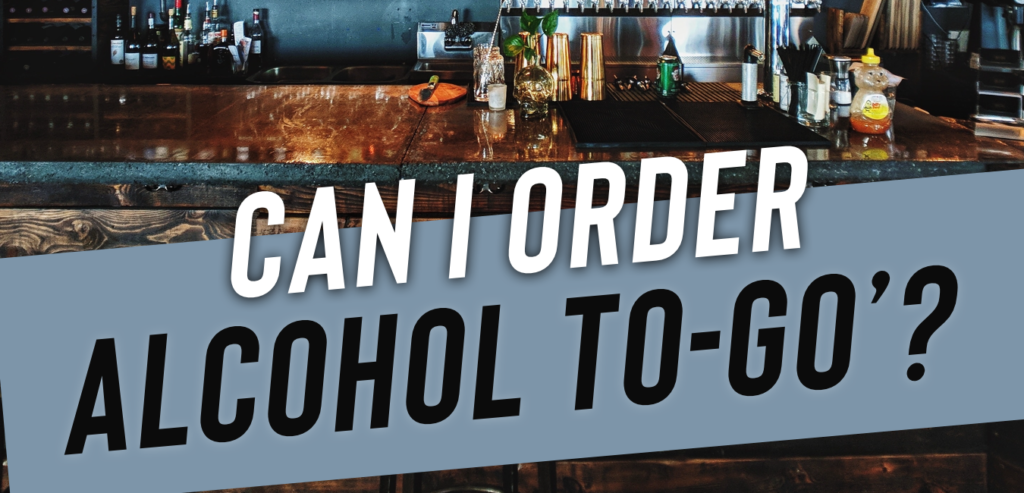Written By Christopher B. Dolan and Megan Irish
This week’s question comes from Ramon P. from East Bay who asks: I have a favorite Mexican food place, and during the pandemic I was able to get their margaritas to go. It was a great treat amidst all the chaos that was the pandemic. Is that going to continue, and if so, now that so many people are back to work and, on the road, is it safe for us to do so?
Thank for your question, Ramon. Yes, people will still be able to order alcohol to go now and for the near future. Last month Governor Newsom extended the ability of restaurants to sell ‘to go’ alcohol, with food orders, through December 31, 2026, by signing Senate Bill 389. The bill was introduced by Napa representative, Bill Dodd and is ultimately stated in section 23401.5 of the Business and Professions Code. There are several safety mechanisms built into the law as well as an automatic deadline for the law to expire.
We all recognize that restaurants were hit hard when the pandemic shutdowns took effect. Countless small businesses were forced to figure out how to go from a thriving restaurant to a ‘to-go’ spot virtually overnight. Modifications to the rules, helped restaurants who were struggling to stay open. This ability to sell ‘to go’ drinks came from the emergency orders of the Alcoholic Beverage Control (“ABC”), which is the governing body that oversees restaurant and bar’s liquor licenses. The rule change came at the end of March, 2020, just as the pandemic was settling in on Californians. As alcohol sales can make up a quarter to a third of a restaurant’s revenue, the ability to make these sales was crucial for restaurants to make it through the pandemic.
While State Bill 389 requires a food purchase in order to sell “to go” alcohol to the customer, it allows patrons to continue to take home their favorite adult beverage with their takeout meal. Here are some important points to keep in mind:
Alcohol cannot be purchased alone. The law also requires the order to be picked up by the actual customer, and not a driver from a delivery service. As well, the restaurant selling the ‘to go’ beverages is required to have a liquor license, and the beverage must be sold in a container that is sealed. A customer must store the sealed containers in the trunk of the car, or otherwise away from the passenger compartment for the drive home. There are also size limitations on the drinks that can be sold. The cocktails cannot exceed four- and one-half ounces of liquor and wine is limited to three hundred and fifty-five milliliters. As well there is a two-beverage maximum per meal purchased.
The requirement that sales are coupled with meals means smaller establishments, think your favorite dive bar, cannot sell to go beverages if they don’t have an in-house food menu. The law has restrictions, requiring a “bona-fide” meal be purchased such that prepackaged products will not meet the requirements, and the food cannot be catered in, like with a food truck. Unfortunately, the small alcohol only spots will not be able to take advantage of this law to serve its cocktails to go. The local bars will remain limited to on premises consumption only.
While all of this is under the guise of keeping restaurants going, it also brings home a lot of safety concerns just like mentioned in your question. DUIs is the first thing that comes to mind. Distracted driving is also a concern. Will people abide by the rules to leave the alcohol in the trunk until they are safely home? If the container is sealed and transported home in the trunk, there is little concern the driver of the vehicle would become intoxicated or distracted by the beverages, but what if they do not follow the rules?
California hasn’t given up all its regulations, by any means. These containers are considered “open containers” which are regulated by the Business and Professions Code, which make it an infraction to possess or consume alcohol in public. So, it is imperative that the ‘to go’ drinks stay in the trunk until the customer is safely home. That protects everyone on the road from risks associated with drinking while driving, or distractions. Additionally, the twenty-one year minimum age requirement is still in full effect, and the purchaser must be able to show ID when they pick up their order. The 2:00 am last call is also still in effect, and no one is selling drinks between the hours of 2:00 am and 6:00 am. This law, permitting the sale of ‘to go’ drinks will automatically expire on December 31, 2026. This will give Californians plenty of time to evaluate if these rule changes are helping the restaurant industry, but also importantly, to confirm if alcohol ‘to go’ is safe for Californians.










